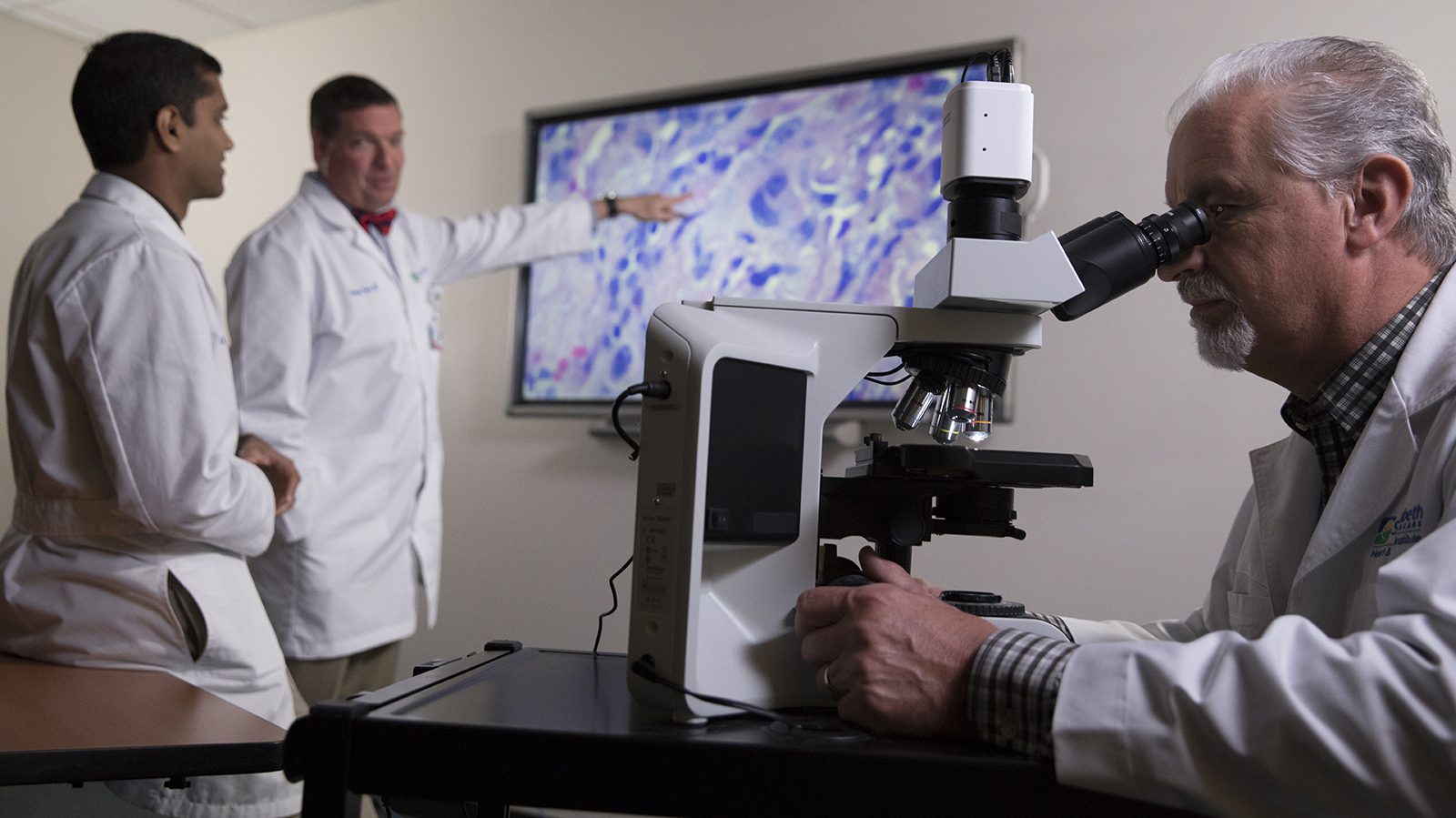Colon Cancer
Colon cancer starts in the large intestine. It typically develops in the form of polyps. Colon polyps are small clumps of cells that form on the lining of the colon. They start as harmless growths, but over time some can develop into colon cancer.
About Colon Cancer
Risks Factors for Colon Cancer
Approximately 5 to 10% of people who get colon cancer have a specific mutation in their DNA that increases their risk of getting colon cancer. Our heredity cancer program can provide important information to you and your family so we can take steps early to identify cancer early, when it is most treatable, and plan your treatment.
Colon cancer can be associated with risk factors, including:
- Age.
- Colorectal polps.
- Family history of colon cancer.
- History of inflammatory bowel disease like Crohn’s disease or ulcerative colitis.
- Obesity.
- Poor diet.

Make an appointment
For more information, please contact your oncologist or the Cancer Care Center at (859) 301-4000.
Causes of Colon Cancer
The cause of colon cancer is unknown, but the risk of developing the disease is higher if you have any of the known risk factors.
Symptoms of Colon Cancer
Symptoms of colon cancer include:
- Abdominal pain.
- Blood in the stool.
- Changes in bowel habits.
- Constipation.
- Diarrhea.
- Feeling bloated.
- Loss of appetite.
- Unexplained fatigue.
- Unexplained weight loss.
Diagnosing Colon Cancer
If your doctor suspects that you have colon cancer, they may run tests to determine the stage of cancer to develop the best treatment plan. These tests include:
- Blood tests to check genetic makeup and blood markers.
- Colonoscopy and biopsy.
- CT scan.
- PET/CT scan.
- Genetic testing.
- MRI.
- Stool test.
At St. Elizabeth Healthcare, we have an MRI test specifically for colon cancer. Our radiology team also has specialists dedicated to diagnosing colorectal cancer.
If you’ve been diagnosed with colon cancer, we can provide a second opinion and present treatment options.
Treating Colon Cancer
At St. Elizabeth Healthcare, we believe in caring for you, not just treating your cancer. Our holistic approach means we combine cancer treatment with working to minimize side effects and help you manage them. Our goal is to make you as comfortable as possible while we use innovative approaches to treat your cancer.
Your treatment plan for colon cancer usually begins with surgery. We also have expertise in treating colon cancer that has spread to the liver. Depending on the stage of your cancer and whether it has spread, your treatment may include:
Preventing Colon Cancer
Colon cancer is typically preventable with a healthy lifestyle and proper screening. Most colon cancers form from polyps that can be detected through a colonoscopy. Colonoscopies or other colorectal cancer screening recommendations are based on medical and family history. Colon cancer screenings start at age 45. If you have a family history, are at high risk, or develop symptoms, talk to your doctor about starting colon cancer screenings earlier.
Positive lifestyle choices can also lower your risk of colon cancer. Lifestyle changes that can reduce your risk include:
Your Cancer Care Team
The team includes medical oncologists specializing in immunotherapy and precision medicine, surgical oncologists, radiation oncologists, interventional radiologists, thoracic surgeons, pain management specialists, genetic counselors, pathologists, nutritionists, pharmacists, nurses and support staff. They work together to create a treatment plan that’s just right for you.


